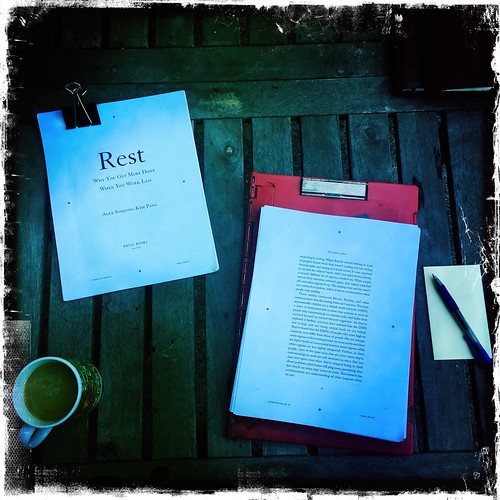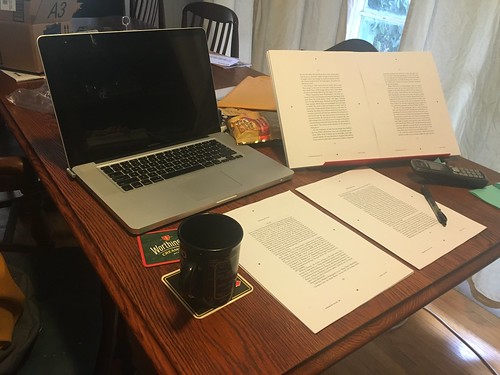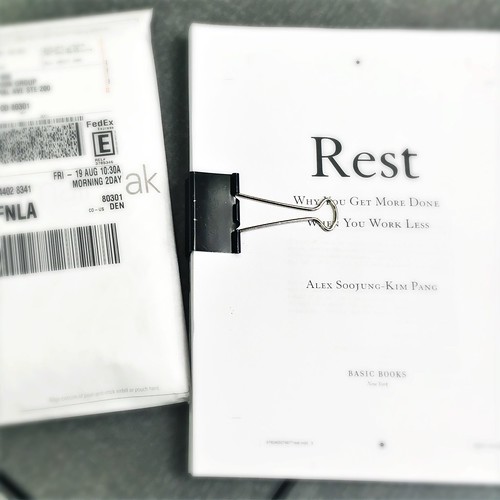Today I emailed my copyeditor the index of REST.
The main body of the book is now completely done, and it can go off to the presses. The version you can preorder is the version that my copyeditor now has.
A couple weeks ago I received the page proofs for the book. (This is why blogging all but stopped.) For those who haven’t been through the process, the page proofs are the next-to-last stage in the publishing process. The manuscript has been revised, it’s been laid out with the final margins, font, etc.; it LOOKS like a book, and reads differently.
At this point your job as an author is to make tiny changes, because the indexer is already reading the book, and it now costs time and money to make changes that materially affect the flow of the book. So if you delete a sentence, you need to write another sentence of the same length, or add a couple words and a paragraph break, or engage in some other kind of trickery to keep changes from flowing across pages.
However, if you’ve done your job and followed your editor’s instructions, at this point you might see the odd typo. More likely, you’ll see that you didn’t realize you’d used a word repeatedly: I found three uses of “overlooked” in three pages, for example, and I tend to start paragraphs with the words “So” and “In other words.” Very occasionally, you’ll see a way to say something better. I rewrote a couple sentences of the introduction that I think materially improve the book. But I had to be careful to cut other lines, and not create overflow problems.
After I finished the main text, I went through the bibliography, which was 50 pages long, and made some cuts, though there wasn’t actually THAT much fat to cut.
Finally, it was time to send it back. I went to my local copy store, and made a copy of the whole manuscript. This is a step that doesn’t change— I did this with my first book fifteen years ago, and with my dissertation twenty-five years ago!
Finally, I was time to put it in the envelope, and send it back to the copyeditor.
So now we’re into final assembly, and dealing more with the book as commodity than content. A couple weeks ago we asked some people to read it and give us blurbs, and those are now just starting to come in (the initial feedback is very good, but of course these are hand-picked people who are essentially being asked to say nice things, so take that with a grain of salt).
I’m beginning to have some contact from foreign publishers who’ve bought translations to REST: we’ve already sold German, Japanese, Dutch, Portuguese, Korean, and Chinese (and maybe Spanish?), and while I wasn’t very involved in the translations of DISTRACTION ADDICTION, I’d prefer to lend more help to the cause this time.
And then there are plans for long-lead magazine pieces, book excerpts, lists of journalists and producers to send promotional copies to, ebook ideas, and so on. Promoting and supporting a book is work. With my last book, I thought that books just kind of survive and thrive on their own, and my work was done. But a published book isn’t an adult, ready to leave the nest and make its own way; it’s a toddler, and still needs lots of help.
Plus I have the feeling that as good as this book is, there’s still plenty more to be said about the subject of deliberate rest, and how companies and schools and individuals can apply it. That’s not to say that the book is inadequate or incomplete; it is to say that the world is a big place, rest is a big subject, and no single book could do it justice.



